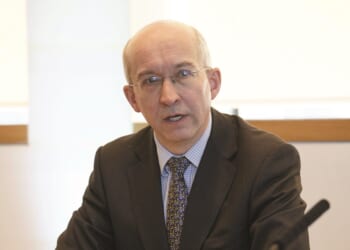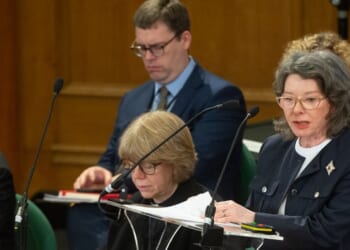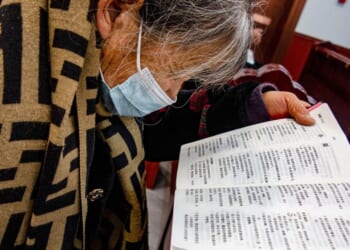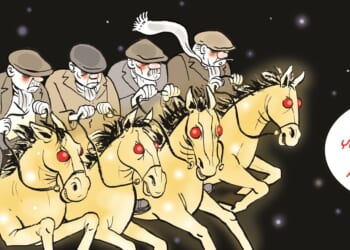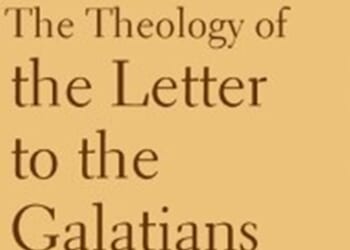American libel law has long recognized the “wire service defense”; to quote Layne v. Tribune Co. (Fla. 1933),
The mere reiteration in a daily newspaper, of an actually false, but apparently authentic news dispatch, received by a newspaper publisher from a generally recognized reliable source of daily news, such as some reputable news service agency engaged in collecting and reporting the news, cannot through publication alone be deemed per se to amount to an actionable libel by indorsement, in the absence of some showing from the nature of the article published, or otherwise, that the publisher must have acted in a negligent, reckless careless manner in reproducing it to another’s injury.
The defense often arose when a newspaper publisher reprinted stories from wire services (such as the Associated Press), but also applied to reprinting from other “generally recognized reliable source[s] of daily news,” such as other newspapers.
It turns out, though, that this issue had arisen long before, and ended up actually being decided in a little-known 1811 case. (It’s not on Westlaw, and has been cited only once in law journals, in an article that I wrote in 2010.) The case, excerpted below, is Binns v. M’Corkle, 2 Browne Pa. Rep. 79 (Dist. Ct. 1811) (Hemphill, J.); note the suggestion near the end that “if [a publisher] should quote from a distant and respectable paper, the name and description of a person, said to have absconded on account of the commission of a crime,” “the republication might arise from motives of public good” and thus be privileged:
[The alleged libel was:] “This Mr. Binns, who openly advocates Buonaparte’s conduct, and maintains his interests in this country, is the same editor of the Democratic Press, who incautiously acknowledged some time since, that if the French government had not have paid him the subscription price of five hundred papers annually, he would have been unable to carry on his paper.” …
To the jury, after stating the case.
Was the editor of the Freeman’s Journal justified in republishing the sentence in the manner he did?
This question is very important, it being a general one and to govern in all cases.
The rule, in the case of slanderous words spoken, is, that if a person utters the words generally, he is not allowed to justify himself, by disclosing for the first time, by his plea, or at the trial, the name of the author; it can then only go in mitigation of damages: but if, at the time he repeated the words, he gave the name of the author so that the party injured might have his action against him, the law allows this to be a justification [this appears to have been the rule at the time, with the usual citations being the Earl of Northampton’s Case, 12 Co. 132, and Davis v. Lewis, 7 Term. Rep. 17 -EV]; but there has been no express decision produced, to shew that this rule has been extended to the republication of a paper, containing a libel. A libel, in some respects differs from slanderous words spoken; it is more criminal, being more deliberate and having a tendency to a breach of the peace.
It appears strange that there has been no decision on this point.
The court however, in extending the rule to the case of a libel, ought to be governed by sound policy, bearing in mind the nature of our government and the freedom of the press.
An unrestrained communication through the medium of the press, and without a previous licence, forms one of the greatest political blessings we enjoy; but this, like every good, has its alloy of evil. On this subject it has been justly remarked by a celebrated author, that the unbounded licentiousness of the press, and the danger of bounding it, will always form a problem capable of puzzling the wisest politicians.
On the propriety of extending the rule to the republication of a libel, much may be said on both sides.
On the one hand, if the rule is not extended, it is said that it will operate as a shackle on the press; upon the other, that if it does apply in the case of a libel, editors may take unfair advantange, by getting a piece put in some obscure paper, in some remote part of the union, and then republish it, with impunity, in the neighbourhood of the person who is the object of the libel.
Will it not upon the whole be safest, and best accord with the general principles of law relating to the subject, to leave the motives of the republisher to the jury. If the republication is made with malice and an intention to injure, let the original publication go only in mitigation of damages; but, if it appears that the republication is made innocently and without malice, let the republisher be excused, if, at the time of the republication, he gave the true source of his information, so as to afford the injured party an opportunity of bringing an action against the real libeller. This will always leave the intention to the jury, who can guard and watch over the motive of the republisher.
If an editor sees a paragraph in a distant and obscure paper, calculated to wound the feelings, or impair the reputation of another, why, it may be asked, should he take it up and give it a wider circulation; such a circumstance, however, under the rule laid down can only weigh as evidence of malice. A case may be imagined, wherein the republisher would appear in a different light; as, if he should quote from a distant and respectable paper, the name and description of a person, said to have absconded on account of the commission of a crime; here the republication might arise from motives of public good.
These observations are made upon the subject generally; for, in this case, as the plea is not guilty, the court are not satisfied that the question can be properly decided under that plea. In similar cases for words spoken, the defendants have justified by special pleas.











